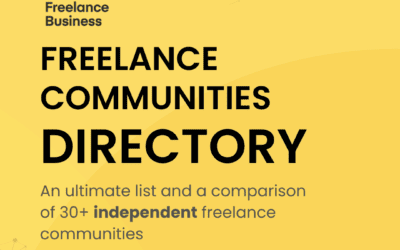In 2021, there were more than 35 million digital nomads worldwide, and the number is expected to grow in the future. As expected, the governments around the world are starting to catch up to the trend and are finding ways to attract the highly-skilled segment of digital nomads. The drop in tourism revenue due to the pandemic has also pushed some countries to open their borders to eager travellers and location-independent professionals.
What sets a digital nomad apart from a regular freelancer or an independent worker is that they usually work from different places while travelling, and not from their permanent residence or home office. If you are a freelancers and plan to travel using a tourist visa, you are usually not allowed to work remotely while staying in a country, which can lead to compliance issues. The digital nomad visas are here to solve that issue. Today, we will look at the countries in Europe which offer a digital nomad visa (or a similar document), which aims to make it legally possible for experts to work across borders.
Which countries offer a digital nomad visa?
Many countries around the globe are already offering such a document, and the list in growing. Worldwide, the list includes Andorra, Anguilla, Antigua and Barbuda, Argentina, Aruba, Bahamas, Barbados, Belize, Bermuda, Cabo Verde, Cayman Islands, Croatia, Curaçao, Cyprus, Dominica, Dubai, Ecuador, Estonia, Georgia, Germany, Greece, Hungary, Iceland, Indonesia, Latvia, Malta, Mauritius, Mexico, Montserrat, Norway, Panama, Romania, Saint Lucia, Seychelles, Sri Lanka, Taiwan, the Czech Republic and more.
Getting a digital nomad visa in Europe
In this article, we will look at countries in Europe which offer a digital nomad visa: we will provide an overview, as well as links to further resources.
Croatia
If you are a digital nomad, temporary stay in Croatia is available for up to one year, but you cannot extend it. You can submit a new application 6 months after the expiry of the previous one. Technically you don’t get a visa, but a temporary residency permit, which can extend to your family as well. You must prove evidence for an income of about €2,232 per month and €26,790 per year. You can see the list of documents required here.
Cyprus
The country has introduced the Digital Nomad Visa Scheme, with a ceiling of 500 applications. It is open to non-EU residents, who will have the right to reside in Cyprus for one year, which can be extended for a further two years. You can apply within three months of arriving in Cyprus. The issue or renewal of a temporary residence permit costs €70, while the registration to the Aliens’ Registry (only in cases of initial registration) costs another €70. Find out more here.
Czech Republic
The Czech Republic offers a temporary digital nomad visa called the Zivno. It is a complicated visa to get, as you will need to have a trade licence for one of the trades listed on their list. It does include popular digital nomad jobs like marketing, photography and IT though.
The Zivno lasts for one year, and you may be required to pass an application interview. You will need to prove a minimum income of around $5,700. Learn more here.
Estonia
With its friendly e-residency options, Estonia is already a known destination for digital nomads and remote workers. They have launched a digital nomad visa with comprehensive terms which you can see here and here.
You will need proof of a minimum of €3,504 in income and pay a state fee of €80 for a Type C (short stay) or €100 for or Type D (long stay) visa.
Georgia
The Remote From Georgia project allows freelancers, digital nomads and entrepreneurs (plus their families) to work and stay in Georgia for up to a year. The programme is open to nationals of many countries, including EU countries and the US. You can find out more about the application process here.
Germany
Germany’s residence permit is called the Aufenthaltserlaubnis für selbständige Tätigkeit and can be granted for up to 3 years. The process can take a long time and require plenty of documents, including Professional authorization, a profit/loss statement (showing your forecasts about monthly profits and losses), as well as an address in Germany and a bank account. You must also be registered with the Tax Registration Office and secure German healthcare.
You can find more information here.
Greece
The Greece digital nomad visa allows you to work remotely for a foreign employer or for your own foreign registered company and lasts one year, but can be extended to three years in total. It has a minimum income requirement of €3,500 per month and costs €75. Greece also offers tax breaks for certain nationalities coming to work in Greece, so it is a destination worth considering! More details here.
Hungary
The White Card is available to third country nationals who can prove an income of €2000 per month and stay in Hungary for more than 90 days within any 180 day period. It does not extend to families. It costs €110 per applicant. More info here.
Iceland
The country offers a long term visa for remote workers. It is only temporary and you cannot plan to stay in Iceland long-term. It lasts for up to 6 months and you need to provide north of €6000 of income to apply. Find out more here.
Malta
Malta offers the Nomad Residence Permit, which allows people from outside of the EU to work in the country for one year (but it can be renewed). You must meet a €2,700 monthly income threshold, as well as have accommodation in Malta and have health insurance. You must also pass a background check. Application costs €300. See more in their website.
Norway
Norway offers a 2-year Independent Contractor Visa. It costs €600 and you need to provide €35,719 income, as well as proof of accommodation. You must submit the application and provide the supporting documents in the nearest Norwegian Embassy or Consulate. Find out more here.
Portugal
Portugal recently opened Europe’s first digital nomad village on the island of Madeira, so it is definitely interested in the segment. It offers two types of visas – one is Portugal D7 visa, which allows you to stay in the country for up to one year (as long as you make at least €665 per month or have €15,960 in savings). The other is the D2 Migrant Entrepreneur / Independent Worker visa, which is suitable if you plan to stay longer, as it includes Portuguese residency. Find out more here and here.
Romania
Romania is a relatively easy country to move to. If you are an EU citizen, you can stay there as long as you like, as long as after 3 months you register with the local immigration police. It has introduced a Digital Nomad Visa – the big obstacle is that you need to prove income of €3,300 a month, which is higher than similar countries. The visa allows you to work for 12 months and can be renewed for a further 12. More information here.
There are also many countries in Europe who are working on their digital nomad visa. Some which have a project like that are Spain, Italy, Latvia , Montenegro and North Macedonia.
Digital Nomad Insurance
Travelling the world and working from anywhere can be super exciting. While you are in the middle of your adventure, however, incidents can happen or you can become ill or injured. These cases can be a real challenge if you haven’t thought about insurance while you are away. Fortunately, it is easy to get insured, even if you are already abroad! Safetywing offers the Nomad Insurance, which is a global travel medical insurance that covers people from all over the world, while outside their home country. This can act as a global safety net, so if you face medical difficulties in a new country, SafetyWing can help you get the help you need. Learn more about their services at their website, or see their Covid-19 travel advice page with current travel information to keep you safe here.
Conclusion
It is amazing to see so many countries opening their borders to the eager flood of digital nomads. We look forward to more steps the governments will take to make working and travelling easier for freelancers and other independent professionals.
Are you a digital nomad? Do you have experience with getting a digital nomad visa? Get in touch with us and share your experience.
Disclaimer: The data provided in this article is for information purposes only, it is NOT legal or emigration advice. Legislations and legal requirements are prone to change. Please check requirements with the relevant government body before moving or applying.




